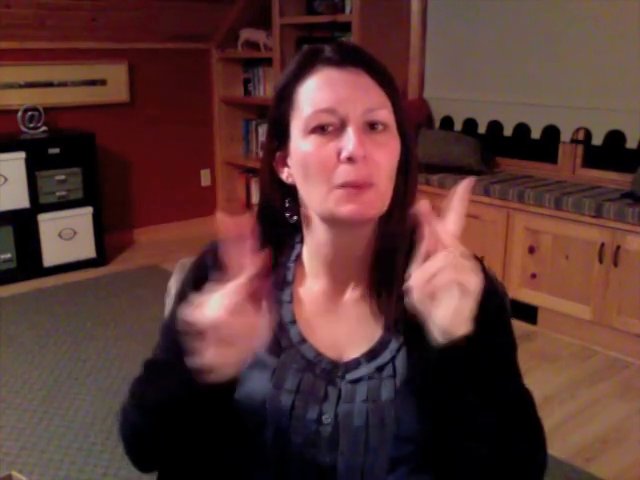This article originally appeared at i711.com.
Last summer, a colleague at a video relay services (VRS) provider contacted me to get names of local key contacts, because the company was looking to set up camp in the Twin Cities. Since I often use this VRS provider – let’s call it ABC VRS – I happily provided names.
Fast-forward to a few weeks ago. I read, with surprise, on an interpreter e-mail list that ABC VRS was hosting an open house. I thought perhaps I simply hadn’t heard about it, because I knew ABC VRS wouldn’t host such an event without involving deaf people. They had been working with a local deaf organization, so I figured I was just out of the loop. But after talking with board members of this deaf organization, I learned that ABC VRS had not reached out to the local deaf community at all. I e-mailed my contact at ABC VRS to ask why. The response:
This event will be strictly an interpreter recruitment event- deaf interpreters are welcome to attend to apply for jobs…
However, for such an event, where interpreters will be asking about salaries, benefits, personal information in terms of employment recruitment- we think it would be appropriate that this event stays the same, that it is for interpreters interested in working with [ABC VRS] – deaf or hearing.
Rest assured… an open invite will go out to…deaf organizations when we have our grand opening… It is our new model about having a meet/greet event for interpreters being separated from an opening event after getting comments from interpreters afraid to ask personal questions during opening events and it seem to work better in interpreter recruitment. It is not a deaf/hearing issue, but rather an employment recruitment effort.
Okaaaaay. While I understand the ‘recruitment’ concept, this exclusion is a slap in local deaf people’s faces. For any new call center, it’s critical to first drum up support from the very core of the VRS industry: deaf people themselves.
A few years ago, another VRS provider, XYZ VRS, came into town and established a call center. The interpreter shortage was severe at the time, and many were caught off-guard by XYZ VRS swooping in and snatching up the few interpreters left. The provider insisted that local interpreters asked the company to come to the Twin Cities. Yet, in a newspaper article, the center manager said that the VRS company had “wooed” local interpreters into establishing the call center. Either way, many locals were unhappy.
The affiliation with the XYZ VRS center got so bad that at a workshop I attended, a participant introduced herself saying, “In addition to being a freelance interpreter, I confess I also work for XYZ VRS.” I was taken aback; had it really gotten that bad – to the point where interpreters were ashamed to admit they worked for this particular company?
This backlash is easily understood, though: you cannot establish a service or company primarily for deaf consumers without involving them. Any company knows that to reach its target market, consumers are to be surveyed, pursued, and included. Interpreters are not the consumers nor the target market when it comes to VRS; deaf people are. We are the ones who utilize the service, relying upon it for everything from personal to professional matters, even life-or-death matters. For interpreters, VRS is an employment option. Deaf people and interpreters are valuable allies with very different goals and needs when it comes to VRS. Besides, without deaf people, there would be no need for VRS.
What ABC VRS and XYZ VRS should have done was involve deaf people at every level – especially locals. Furthermore, any interpreter uncomfortable asking questions in front of the company’s consumers shouldn’t be asking them at an open house; this should be saved for the actual hiring process. Transparency is key, especially with federally funded programs like VRS.
Any event, activity, or venture involving a very specific aspect of a community must involve the community’s core members, regardless of circumstances. It’s not an either-or issue. Involve local deaf people and interpreters when trying to establish a new call center in a particular location.
ABC VRS has shot itself in the foot by not drumming up support among deaf people, even if it’s managed to recruit some of the best interpreters in the state. This has left a bad taste in local deaf people’s mouths – the few who actually know about ABC’s plans, that is. Most of the local deaf people are still in the dark about ABC VRS coming to town, because ABC VRS hasn’t really involved them.
VRS companies must stop biting the hand that feeds them – especially when this hand belongs to the local deaf community.
Copyrighted material. This article can not be copied, reproduced, or redistributed without the express written consent of the author.

